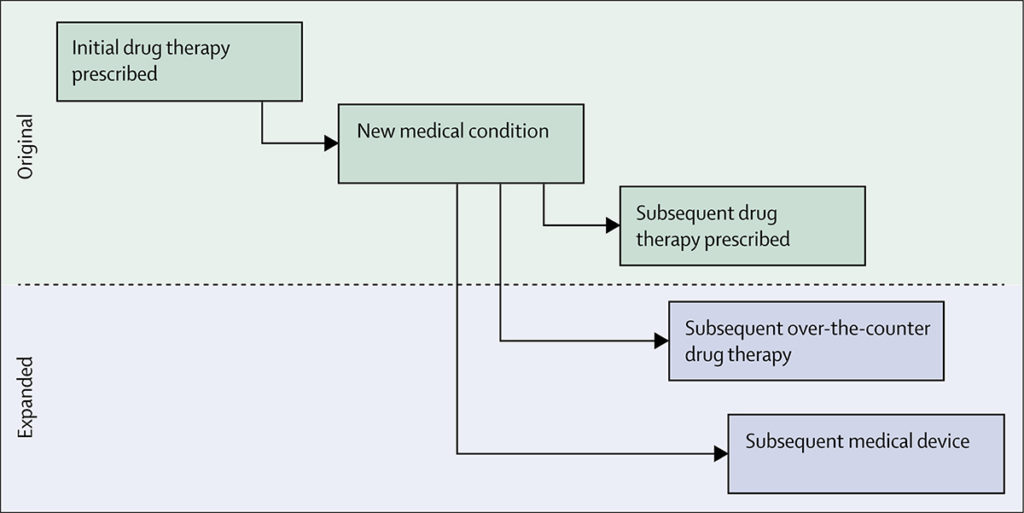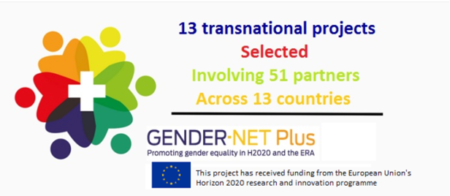To learn more about the team’s international GENDER-NET Plus research funded project, Identifying Key Prescribing CASCADes in the Elderly: A Transnational Initiative on Drug Safety (iKASCADE), please click here.
Aging, Sex and Gender
By 2025, more than 25 per cent of our population will make up the 65+ demographic, making Canada a super-aging society. As this society continues to grow and diversify, so too, will their healthcare needs. Research can help enhance the aging experience by providing the tools needed to improve health and wellness. Women make up the majority of the older population and face unique challenges throughout the aging process that are singular to their sex. As a result, a sex and gender lens in research must be included to ensure better quality and more well-rounded evidence that takes into account how older women’s health experiences differ from those of men’s.
Researchers at Women’s College Research Institute (WCRI) are incorporating sex and gender differences to better understand the unique healthcare needs of older adults, particularly women, at a population level. From loneliness, to prescribing techniques and caregiving, the research team at WCRI is investigating societal issues associated with aging to explore solutions for improving the health and wellness of older adults.
Senior scientist Dr. Paula Rochon explores medication safety, and more specifically, how to optimize prescribing and drug therapy for older adults. This includes when to best start and stop specific medications. For older women, medications are a key healthcare focus and area of concern. Women are more likely to have an adverse drug event as a result of a medication and are also more likely to be prescribed an inappropriate drug therapy. Much of Dr. Rochon’s clinical work as a geriatrician coupled with her extensive research in the field of aging has laid the foundation of her expertise on older adults.
To learn more about the aging research team, click here.
Women’s College Hospital is also home to the first and only centre of its kind in the world – Women’s Age Lab.
Women’s Age Lab aims to support the healthy aging of women by reimagining a system and society where older women and their distinct well-being and health needs are recognized and addressed. Together with researchers, healthcare providers, community-based organizations, and policy makers we will be a catalyst to improve the lives of older women around the world.
In addition to her role as Senior Scientist at Women’s College Research Institute, Dr. Paula Rochon was awarded the Retired Teachers of Ontario Chair in Geriatric Medicine. She recognizes the opportunity to be part of a larger national conversation about aging and communicate existing and ongoing research with the general public. Dr. Rochon is leveraging the community of RTO/ERO members by working with them to understand the leading challenges associated with aging from a public health perspective. Her priority is improving the health and wellness of older adults through research and she shares the RTO/ERO’s vision of achieving healthy aging for all Canadians.
Dr. Rochon is committed to the development of trainees and new investigators in the field of aging. Her diverse team is identifying factors associated with the health and wellness of older adults, while simultaneously identifying potential challenges, such as loneliness and caregiving. Recently, there has been a brighter spotlight placed on the impact of loneliness among older adults, as it can negatively affect both physical and mental health. In addition to loneliness, caregiving remains one our country’s most pressing healthcare and societal issues. It can have a detrimental impact to one’s physical, mental, social and economic outcomes. Research conducted by WCRI trainees is exploring the impact of caregiving to inform strategies to reduce its potential burden. Through their research, Dr. Rochon and her team of trainees are working to provide older adults with the tools they need to shape the life they want.
Dr. Rochon and her team have published more than 250 articles in medical journals. Read the latest publications below to learn more about our aging population and the important research that Dr. Rochon and her team are conducting.
Assessing the Scope and Appropriateness of Prescribing Cascades – McCarthy LM, Visentin JD, Rochon PA.
Cognitive effects of adjuvant endocrine therapy in older women treated for early-stage breast cancer: a 1-year longitudinal study – Underwood EA, Jerzak KJ, Lebovic G, Rochon PA, Elser C, Pritchard KI, Tierney MC.
Neighborhood Walkability of Retirement Homes: A Cross-Sectional Cohort Study – Brath H, Kim SJ, Savage RD, Bronskill SE, Rochon PA, Stall NM.
Ikascade Project
This project, Identifying Key Prescribing CASCADes in the Elderly: A Transnational Initiative on Drug Safety (iKASCADE), is exploring how older women, men and gender-diverse individuals are affected differently by prescribing cascades and how prescribers treat their patients based on sex and gender. As outlined in the graphic below, prescribing cascades are common and happen when the side effect of a medication is treated with a potentially unnecessary and harmful second drug.
Since women live longer than men, they are more likely to be prescribed inappropriate drug therapies and experience more drug-related adverse events. To interrupt prescribing cascades, there is a need to understand sex and gender differences. Despite the pervasiveness of prescribing cascades, little is known about their presentation or management and whether differences persist across countries. As such, the international iKASCADE team is working to bridge this critical knowledge gap.
Findings from this project will improve widespread understanding of how adverse drug events are different between older women, men and gender-diverse people across various settings (hospital, long-term care, community) and countries, and inform the development and dissemination of knowledge and tools to reduce the frequency and impact of prescribing cascades.
To learn more, please watch this video with the project’s Primary Investigator, Dr. Paula Rochon.

The iKASCADE project is one of 13 transnational projects selected for funding by the prestigious, international GENDER-NET Plus consortium. This specific project involves a collaboration between five different countries and nine institutions.
Countries: Belgium, Canada, Ireland, Israel, Italy, USA.
Institutions: Women’s College Hospital, University of Toronto, University College Cork (Ireland), Istituto nazionale di ricovero e cura dell’anziano (Italy), Clalit Research Institute (Israel), University of Massachusetts (USA), University of Bologa (Italy), University of Sacro Cuore (Italy), University of Ghent (Belgium).
Learn more about how our international partner organizations are helping to bridge knowledge gaps around aging and the healthcare needs of older adults.
USA: The Aging Initiative
The goal of the HCSRN-OAICs (Health Care Systems Research Network-Older Americans Independence Centers) AGING (Advancing Geriatrics Infrastructure & Network Growth) Initiative is to create a national resource to advance an interdisciplinary research agenda focused on older adults with multiple chronic conditions. Efforts of the AGING Initiative will lay the foundation to address the knowledge gaps that exist regarding the health and healthcare of these understudied patients.
To collect data and create a comprehensive, internationally relevant inventory of prescribing cascades affecting older adults, the iKASCADE team:
- Has created a modified Delphi procedure where international experts in prescribing will rank a list of prescribing cascades as to their clinical importance.
- Is using administrative and clinical data on older adults to evaluate the frequency of prescribing cascades by sex across five countries, in the hospital, long-term care and community settings.
- Is using interviews and realistic, country-specific vignettes (each incorporating a prescribing cascade with identified sex differences) to explore how socially constructed gender roles contribute to the experience, presentation and management of prescribing cascades.
Concrete outcomes from the iKASCADE project include the development of an inventory of common prescribing cascades; detailed understanding of sex-specific prescribing cascades in hospital, long-term care, and community settings; greater understanding of similarities or differences regarding prescribing cascades in six countries; and a nascent understanding of the ways in which gender dimensions may influence the development or treatment of prescribing cascades.
Data collection and analyses is ongoing, but to date the team has identified over 100 prescribing cascades. Currently there are few methods that examine gender inequities in countries with a high socio-economic status, so the team is adapting a framework to do this that can be used by others.
- Canadian Medical Association Journal – Prescribing cascades in older adults
- Canadian Medical Association Journal – Prescribing cascades in older adults podcast
- National Library of Medicine – Identifying key prescribing cascades in older people (iKASCADE): a transnational initiative on drug safety through a sex and gender lens-rationale and design DOI
- British Medical Journal– Using a clinical process map to identify prescribing cascades in your patient
- JAMA Internal Medicine – Evaluation of a Common Prescribing Cascade of Calcium Channel Blockers and Diuretics in Older Adults With Hypertension
- JAMA Internal Medicine – Antihypertensive Prescribing Cascades as High-Priority Targets for Deprescribing
- Journal of American Geriatrics Society – What Is Known About Preventing, Detecting, and Reversing Prescribing Cascades: A Scoping Review
- Journal of American Geriatrics Society – Assessing the Scope and Appropriateness of Prescribing Cascades
- The Lancet – The Prescribing Cascade Revisited
- New York Times – The Risks of the Prescribing Cascade
Sternberg S, Guy-Alfandary S, Rochon PA. Five Things to Know About Prescribing Cascades in Older Adults. CMAJ. 2021.
Sternberg SA, Rochon PA, Gurwitz JG. Focusing on medications that increase the risk of falls in older adults. [Invited Editorial]. Accepted to European Geriatric Medicine Journal. Dec 26 2020.
Identifying Key Prescribing Cascades in the Elderly Symposium: A Transnational Initiative on Drug Safety. International Congress of the European Union Geriatric Medical Society. September 27, 2019. Krakow, Poland.
Exploring Common Prescribing Cascades Among Older Women and Men in Three Key Settings of Care: A Transnational Initiative on Drug Safety. Special Interest Group in Geriatric Pharmacology, International Congress of the European Union Geriatric Medical Society. September 28, 2019. Krakow, Poland.
Clinically important prescribing cascades affecting older adults: A modified Delphi study across professions and countries. Lisa M McCarthy, Rachel Savage, Kieran Dalton, Robin Mason, Joyce Li, Andrea Lawson, Wei Wu, Paula A Rochon on behalf of the iKASCADE Consortium.
The iKASCADE project has received federal funding from the Canadian Institutes of Health Research (CIHR) and from the federal funding agencies of the international partners, as well as funding from GENDER-NET Plus.

